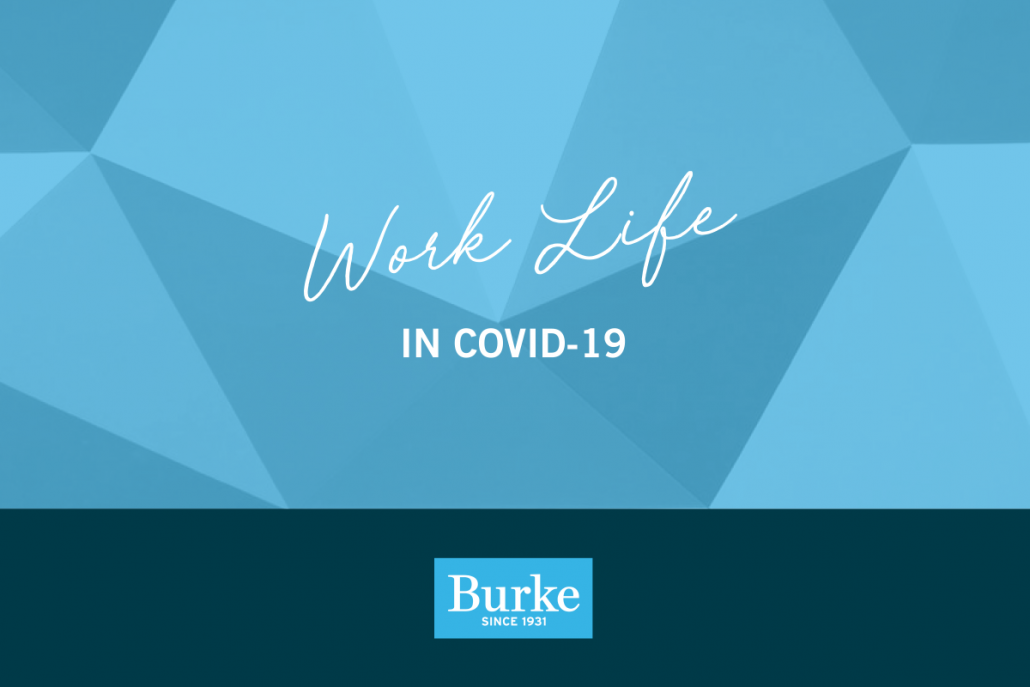
Work Life in COVID-19: Employees Adapt to a New Normal
By Jaci Jarrett Masztal, PhD, and Heather Sutphin, PhD
There is no denying that COVID-19 has impacted our day-to-day lives in almost every aspect. Social distancing is the new normal, travel is on pause, and nearly 43 million children are out of classrooms and learning at home. But beyond how we live and interact, work has changed.
COVID is a threat not only to personal health and wellbeing, but to workforce stability and performance. Labor Statistics as of May 14 show 36.5 million people are out of work, with 2.8 million exiting this week alone (1). The number of new jobless claims is decelerating but still adding up. Households have been dramatically impacted by both temporary and permanent job losses, with many trying to survive on significantly reduced hours and wages.
Hardest hit industries include travel and hospitality, and direct service jobs, such as those in airlines, hotels, restaurants, entertainment, and sports. We know precautions are being taken to avoid spreading the virus, but what about precautions for job wellness?
Burke conducted industry-wide research on 600 employees that was completed at the beginning of May. We found that 25% of respondents lost their jobs either temporarily or permanently, with another 18% concerned about losing their job and/or have already had work hours cut. On the positive end of the spectrum, 44% indicated COVID-19 has had no real impact on their employment thus far.

Employees who are still working were asked about their work engagement. Half self-reported being totally or very engaged in their work, while another 42% indicated that they are engaged, although admittedly distracted. Only 8% reported not being very engaged, with too many other things to address first.
However, results show that people are concerned about themselves and others contracting coronavirus, and this concern could be a real distraction while on the job.

Looking to the future, 40% of respondents believe things will be able to return to normal, or at least close to normal, in their work by the end of the year. However, just over one-fourth of respondents chose not to speculate about when a sense of normalcy will return.

Those still in the workforce were also asked about their companies’ responses to the pandemic, with many sharing positive experiences. Over half are receiving more workplace accommodations, including work-from-home options. Over 40% have witnessed increased workplace cleanliness and more frequent communication on how their company is addressing COVID-19. One-third of respondents noted receiving encouragement from leadership during these stressful times. Less than 20% indicated their employer had provided no meaningful type of response.

In recognition of this new business environment, companies need to ensure employees remain engaged and connected while managing the COVID-19 crisis. Here are 10 recommendations to help companies keep engagement high:
![]() Ensure leaders are visible – literally and figuratively. Hold virtual information meetings where the CEO/President can provide updates, even if it’s basic messaging around “this is where we are, and this is where we’re headed.”
Ensure leaders are visible – literally and figuratively. Hold virtual information meetings where the CEO/President can provide updates, even if it’s basic messaging around “this is where we are, and this is where we’re headed.”
![]() From top leadership down through management, acknowledge the uncertainty while committing to perseverance.
From top leadership down through management, acknowledge the uncertainty while committing to perseverance.
![]() Enhance communication – both down and up. Give employees the opportunity to ask questions and respond immediately. It’s okay to say, “I don’t know, but I can learn more and get back to you.”
Enhance communication – both down and up. Give employees the opportunity to ask questions and respond immediately. It’s okay to say, “I don’t know, but I can learn more and get back to you.”
![]() Accommodate, accommodate, accommodate.
Accommodate, accommodate, accommodate.
![]() Be flexible – more flexible than ever before.
Be flexible – more flexible than ever before.
![]() Reduce risk and monitor health. Provide for safe workplace distancing, promote masks being used where appropriate, and ensure that organizational culture supports employees staying home when feeling ill or presenting any symptoms.
Reduce risk and monitor health. Provide for safe workplace distancing, promote masks being used where appropriate, and ensure that organizational culture supports employees staying home when feeling ill or presenting any symptoms.
![]() Take time to be kind and care. Now is the time to ask: What can I do to help?
Take time to be kind and care. Now is the time to ask: What can I do to help?
![]() Be understanding of what employees are going through while working from home. Realize that lower productivity may be unavoidable with parents having their children at home.
Be understanding of what employees are going through while working from home. Realize that lower productivity may be unavoidable with parents having their children at home.
![]() Think strategically and creatively to keep the business going. Move to Plan B, Plan C, Plan D, and beyond to maintain purpose and contribution.
Think strategically and creatively to keep the business going. Move to Plan B, Plan C, Plan D, and beyond to maintain purpose and contribution.
![]() Get through it together. On the other side, work bonds will likely be strengthened as most employees will share an increased willingness to work harder toward success
Get through it together. On the other side, work bonds will likely be strengthened as most employees will share an increased willingness to work harder toward success
If and when business returns to normal, employees will be necessary to keep things moving. Take care of them now so they can be there fully for customers and operations later.

As an organizational psychologist and Vice President at Burke, Inc., Jaci Jarrett Masztal energetically helps companies connect the dots between internal company culture, organizational effectiveness and employee engagement to the external customer engagement, loyalty and business performance.

Heather Sutphin is a Senior Analyst at Burke, Inc., with a PhD in Industrial/Organizational Psychology. With experience across industries and methodologies, Heather partners with clients through all phases of research to create actionable insights.
As always, you can follow Burke, Inc. on our LinkedIn, Twitter, Facebook and Instagram pages.
References:
As reported in the Wall Street Journal, May 14, Economic Impact, by Sarah Chaney & Gwynn Guilford. https://www.wsj.com/articles/unemployment-benefits-weekly-jobless-claims-coronavirus-05-14-2020-11589410374








